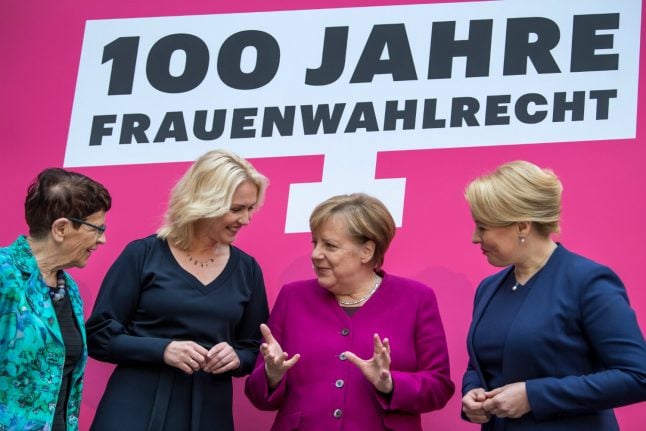Much has been achieved over past decades in the road to gender equality, Merkel said, pointing out that a woman is no longer laughed at if she wants to be a minister or a chancellor.
But “a swallow does not a summer make,” she said in a speech marking a century since women won the right to vote in Germany.
“The fact that I exist should not be an excuse.”
Merkel was speaking at a celebration of 100 years of women's suffrage in the German Historical Museum.
She was joined by several women, including Rita Süssmuth (CDU), the former President of the Bundestag, Manuela Schwesig (SPD), Prime Minister of Mecklenburg-Vorpommern, and Franziska Giffey (SPD), Federal Minister for Family.
Women make up just under 31 percent of the Bundestag or German parliament, down from over 36 percent previously.
“That's the proportion of women that Sudan has in its parliament,” said Merkel.
“I think that the proportion of women in our parliaments is a basic issue of our democracy.”
SEE ALSO: More men named 'Hans' than women in top German government roles
Beyond politics, women are also few and far between in the highest echelons of the country's businesses.
While 90 percent of the biggest listed companies in the United States have two women on their boards, in Germany only 17 percent meet this criteria.
“I hope that it will become a matter of course for men and women to share work, child-raising and housework equally and that no one will be forced into a role or a specific task because of his or her gender,” said Merkel.
“And I hope that we won't have to wait a hundred years to achieve that.”
SEE ALSO: 100 years of female suffrage – the unknown story




 Please whitelist us to continue reading.
Please whitelist us to continue reading.
Member comments